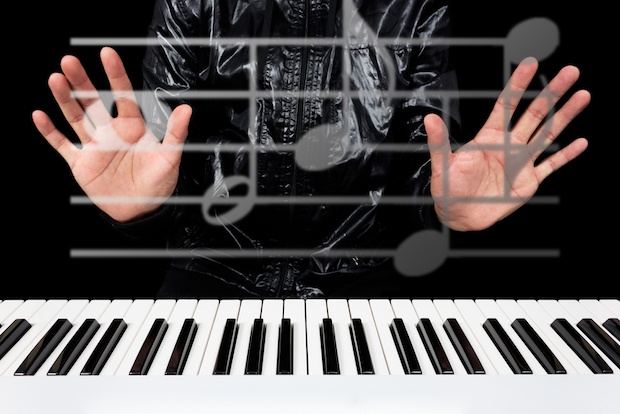 Image via shutterstock.com
Image via shutterstock.com
When I was teaching at Berklee College of Music, my students seemed to think that all you needed to do to make a career out of being a songwriter was write good songs. And each semester, I would have to go on a rant about how that's only half of the story. This is that rant.
Why you need to learn how to produce your own demos
Songs don't exist until they're heard and appreciated fully for what they are by an audience. This means that the 20 songs you have in your smartphone recording app are not songs. They're ideas. Only once you make a proper demo of them – a recording that lets a listener be fully immersed in the story and music and not be distracted by shitty production value – will they have value. This means that you'll need to either pay a producer to make a professional track for you, or learn how to do it yourself.
You know where I'm going with this. A songwriter trying to break into the industry will easily write between 80 to 120 songs a year. Hell no, you can't afford to pay a producer for each of those songs! So this is why learning how to make your demos is such a huge deal – a huge freaking deal.
These are the essential elements of demo production you need to master:
- Vocal production: This involves recording, editing, and mixing a professional-sounding vocal (I'll be doing a weekly series specifically on this topic!). For a small startup cost of about $1,500, a decent mic, and an interface, you can start recording vocals. Tip: For a quick makeshift vocal booth, just hook your comforter around the top of your bedroom door and close the door. Drape the comforter around yourself like a tent and sing into the door. Make sure you don't have any noises in the room, either from the street or from a vent system.
- Beat production: The better the beat, the better your song will shine. Conversely, a bad beat will make even a great song sound bad. So, while your practicing your production skills, keep your demos simple. Just use a MIDI piano and some string patches to give your song life. Drums are hard to get right; same with synthesizers. As long as the vocal performance is great, the track doesn't have to do that much to make it work.
- Engineering: Again, keep this simple when you're just starting out. You can just put one or two microphones on an acoustic guitar, and record it into your digital audio workstation (DAW). For the easiest effect, place one mic near the guitar hole, and one near the neck. If you're a new performer, you can use the edit features in your DAW to clean up your takes.
All this stuff sounds like a huge mountain to climb, and every student I talk to about demo production gets wide eyed and nervous. The secret is to pick your battles. Start with vocal production, and get really good at that. A great vocal over a simple piano track can work wonders. Once you know how to make a vocal really shine, then you can start doing the other stuff.
Also, don't forget that literally anything you want to learn about demo production is freely available on the internet – you just gotta know where to start. For starters, check out the "recording" category of the Sonicbids blog, as well as these websites and YouTube channels:
Benjamin Samama taught songwriting at Berklee College of Music from 2013–2015 and currently writes and produces pop music full-time in Los Angeles. His songs have been released by dozens of artists all over the world and enjoyed by millions. Click here to contact Benjamin if you'd like a one-on-one songwriting consultation with him.







